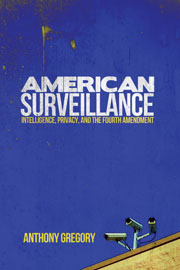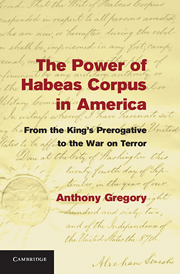The Supreme Court this week heard oral arguments in FCC v. Fox. In this important first amendment case, the Judges will determine whether to enact significant limitations to the Federal Communication Commission’s power to censor the airwaves. The proximate issue concerns FCC’s fines leveled at Fox for four-letter words spoken by Cher and Bono at awards programs and at ABC for a nudity scene on NYPD Blue. The Court must rule on whether the FCC should continue exercising prerogative in deciding, for example, that a bad word is OK in Saving Private Ryan or news programming, but not on a comedy show.
More fundamentally, the networks’ lawyers seek to overturn FCC v. Pacifica (1978), the case in which the Court upheld the FCC’s action against a radio station for broadcasting George Carlin’s routine on the “Seven Words you can never say on television.” This decision became the foundation for asserting widespread authority over on-air content. The lawyers argue that cable channels enjoy great leniency to practice their First Amendment rights. Why not the networks? It raises a valid question, for which the answer can be found in the tragedy of the commons created by the FCC’s control over the spectrum.
Indeed, government telecom regulation is widely regarded as benign, but the FCC’s many decades of censorship should give any civil libertarian pause. Regulation is commonly misconstrued as a brake on corporate power necessary to safeguard the interests of the common man. In reality, federal regulations are often pushed by the very industries being “regulated”—a pattern demonstrated time and again by economic historians dating back to New Left scholar Gabriel Kolko. Concerning telecommunications, this has been true since AT&T President Theodore Vail successfully persuaded President Woodrow Wilson to sign off on a national telephone monopoly in the name of “one system, one policy, universal service.” Vail famously boasted that he and his business affiliates were “first to advocate...governmental control and regulation of public utilities.”
Thus, the trend continued with broadcast radio into the 1920s, when then Secretary of Commerce, Herbert Hoover, convened with top broadcasters at a series of conferences to discuss the possible nationalization of radio. The top industrialists tended to favor more federal control to prevent competitors from jumping on the radio at increasingly lower overhead costs. L.R. Krumm of Westinghouse said, “I believe 12 good stations, certainly a maximum of 15, would supply most of the needs of the country.”
In 1925, Hoover and his corporate supporters outlined a plan to license stations in the guise of “public interest.” The Federal Radio Act of 1927 delineated the airwaves as public property. In 1934, Congress created the FCC. In 1940, the FCC unveiled the Mayflower Doctrine, instructing stations that their licenses would not be renewed if they were caught expressing political opinions. Once the airwaves were considered public property, it was only natural that the government would police content.
In the late 1940s, the FCC instituted a freeze on new television stations out of concerns that the close proximity of stations to one another would cause interference. This continues to be the implicit rationale for FCC regulation of the airwaves, but the spectrum is artificially limited and in the information age, this rationale has become a complete anachronism.
In the 1950s, the FCC dabbled with enforcing anti-communist speech codes. The agency has since come to regulate the whole of telecommunications, playing favorites and punishing those who violate federal speech codes on the air. Aside from designating television and radio stations, assigning frequencies, and granting and revoking licenses, the FCC regulates telegraphs, cellular phones, satellites, and cable television.
Today many well-meaning folks loudly advocate “net neutrality,” but the danger is that the FCC will extend its typical heavy-handed approach to the Internet. With officials in the current administration having publicly advocated Internet “gate keepers” and other Big Brother measures to control content on the web, we should be careful what we wish for.
The power to regulate is all too often morphed into the power to censor. Liberals complain about the Reagan era of FCC deregulation, including the retiring of the Fairness Doctrine. But the 1980s were also a period of laissez-faire concerning so-called “decency” standards. In fact, there were no FCC indecency fines through most of the Reagan years, up until 1987.
In the wake of the infamous “wardrobe malfunction” between Justin Timberlake and Janet Jackson at the 2004 Super Bowl halftime show, the FCC went after CBS with a vengeance. The Bush administration launched a new era of FCC witch-hunts and greatly increased the fines encompassed by the Broadcast Decency Enforcement Act of 2005. Ninety percent of the House of Representatives voted for this unconstitutional legislation. Only thirty-six Democrats—and one Republican, Ron Paul—voted against.
The FCC’s actual achievements in defending the public interest have long been dubious at best, but the bottom line is that this body’s mission is an unconstitutional and inappropriate role for the government- and key reason the Supreme Court, as well as all Americans, should demand the FCC stop policing the airwaves. The First Amendment precludes such federal activity. Until television content can be freely determined and managed by private contract, Americans upset about what’s on television should change the channel, rather than asking the FCC to flex its power.
Perhaps this summer we will finally see the outdated and unconstitutional FCC rules take a judicial beating. Unfortunately, the Court has as dubious a record on similar free speech issues. In Schenck v. United States (1919), the Supreme Court upheld the conviction of a man under the Espionage Act for daring to vocally oppose the military draft. In Jacobellis v. Ohio (1964), Justice Potter Stewart gave us the “Miller test” to determine whether pornography qualifies as obscenity unprotected by the First Amendment: “I know it when I see it.”
The real obscenity exists in trusting government officials, whether in robes or suits, with the authority to override our freedom of expression and speech. In a time when politicians of both parties are looting taxpayers, agitating for aggressive wars, bankrupting the nation for the military-industrial complex, violating habeas corpus, implementing a drug policy that is destroying Mexico and America’s inner cities, and inflicting detention and death upon suspected terrorists without due process, I guess we can take some solace in the fact that Supreme Court Justices and federal regulators are prepared to shield the public from dirty words.








